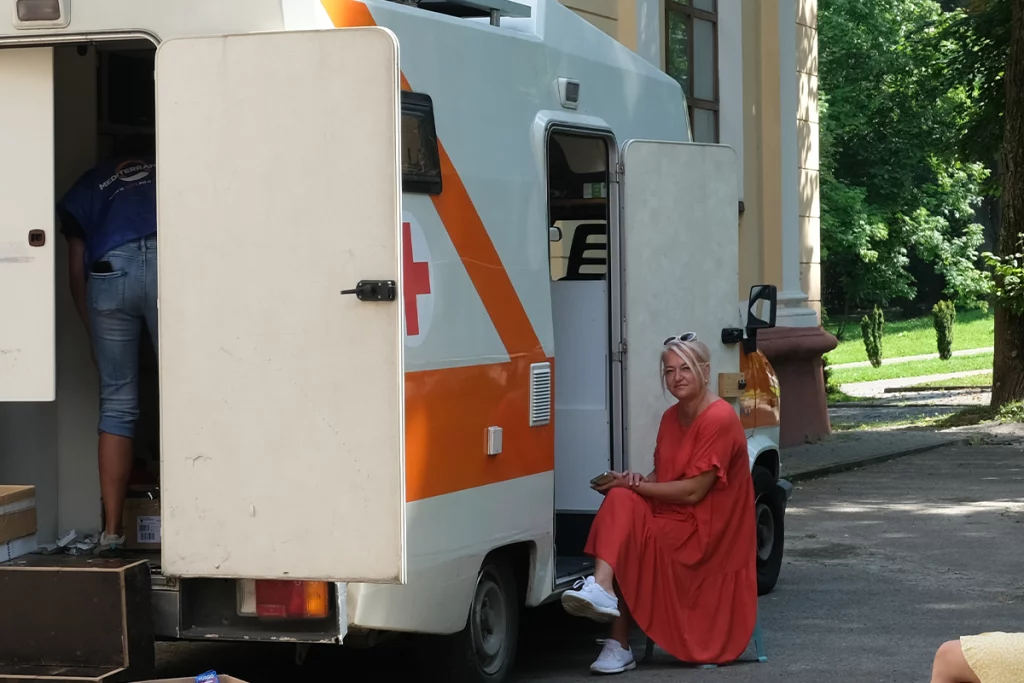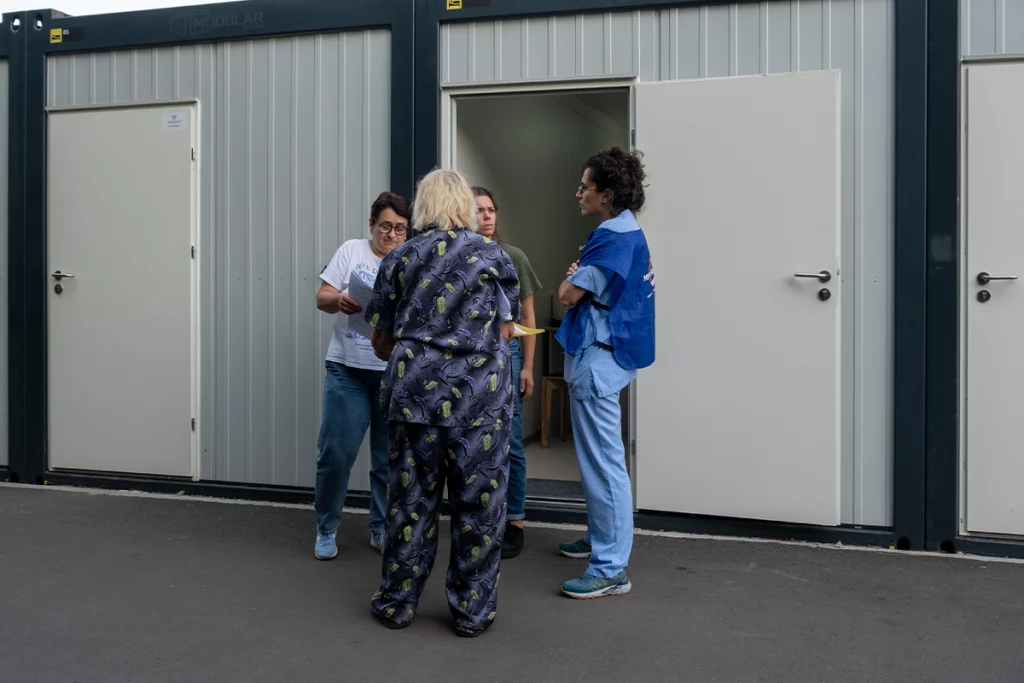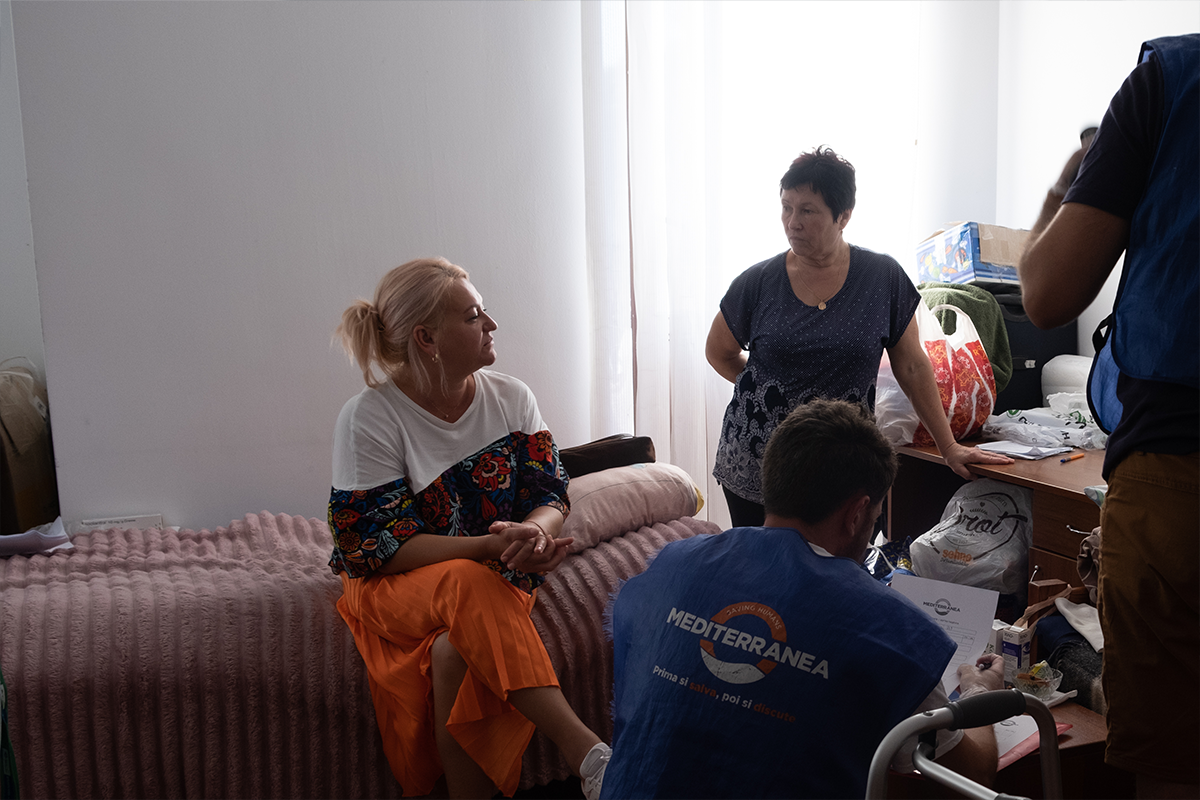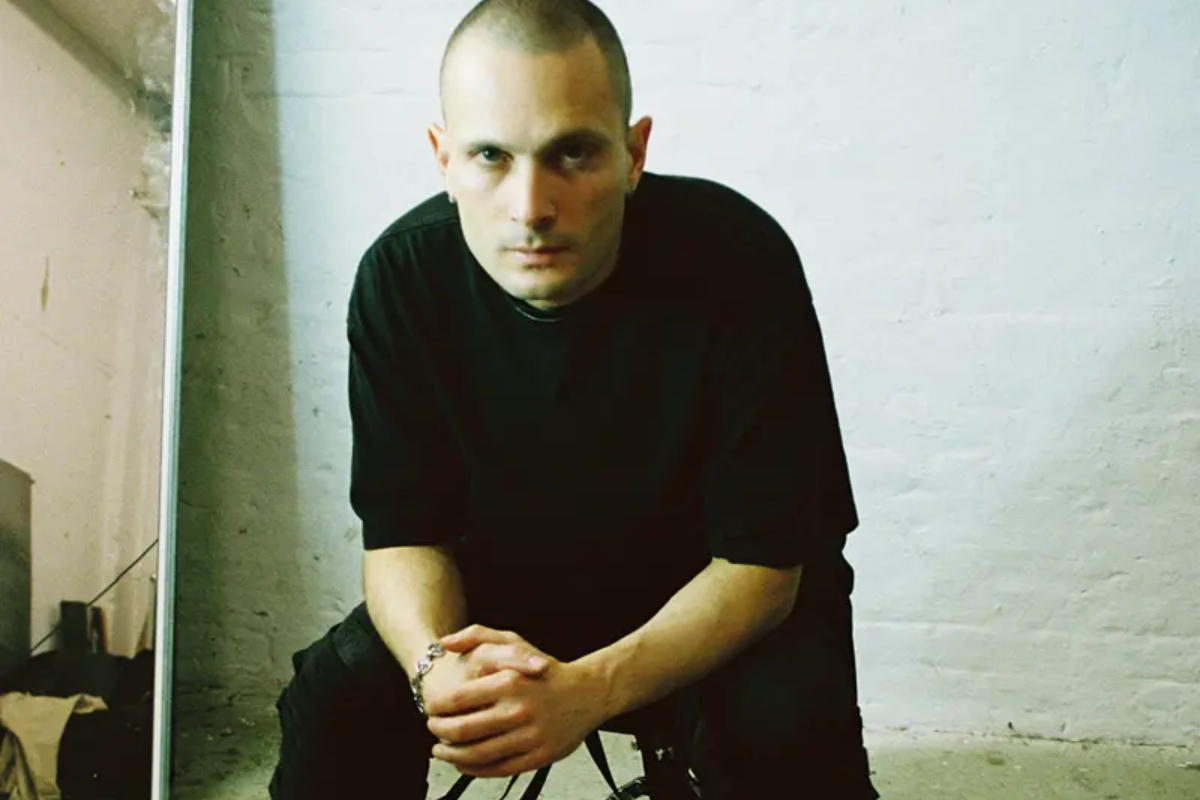Ukrainian translators are often women who spent years abroad and learned other languages. They stepped up to help their country. A reportage from the war front
Ukrainian translators during the war, helping the community
Lviv, Ukraine, August 2023. I met Larisa and Liliya on two separate occasions, but in similar circumstances. They are both translating for a team of volunteer physicians who came to the ‘refuge city’, as everyone refers to Lviv, to visit refugee camps and provide medical care. I am visiting the camps with the team and getting the chance to observe the work Liliya and Larisa do as translators. In Ukraine, not many speak English, or any other European language.
Communicating, it goes without saying, is a crucial aspect when it comes to organizing humanitarian help. The first questions volunteers and doctors ask are «what do you need? »; «what can I do for you? ». Understanding the answer, putting it into context, is essential to be able to help. Here is where the work of Ukrainian translators comes in. They are usually women who spent some time abroad and learnt the language, which makes them able to act as a bridge between those who need help and those who are there to provide it.
They have been activated since the beginning of the war – using their acquired skills to show up for their community, to help. They are generally not professionals, just people who have the ability and willingness to take on such a complex, and often painful, role.
Translating during a war in Ukraine: emotional and practical aspects
Translating at a time like this means first of all listening. Being able to listen to the questions that are asked daily by doctors and volunteers, to be able to interpret them: translators are their ears and voice. Their daily tasks range from making phone calls on their behalf to local authorities, to talking to people in shops, to translating during medical checkups, to finding the nearest shelters when the air alarm goes off, to collecting the stories of the refugees and patients.
As such, they have to continuously switch mindset: from operative to human and emotional. From booking appointments and arranging visits, to receiving and welcoming the stories of those who had to leave everything – and often everyone – behind. They are not merely translators either: they know the culture; they know the people and the local ways – which they are able to transfer the meaning of to foreigners willing to act in such delicate dynamics.

From Ukraine. Translators welcoming stories: the role of suffering
The most terrible stories often come when you least expect it. It is common for patients, refugees in the camps, to feel a need to share their personal experiences. These are stories of war, death, wounds, of loss and migration. This can happen before, after or during a medical checkup. The translator then has to stop, suspend the medical talk, and listen. At that point, they will hear people – and not just any people but their own fellow nationals – talking about the most horrifying moments in their lives, sharing their most intimate trauma.
They take it all in, pause – but it is just a few seconds. Immediately after that, they have to find the strength to start looking for the most appropriate words in another language, to properly transfer the horror. Seeing this process means witnessing the war unfold – the consequences on the civil population, mediated so that outsiders like us can begin to understand. At the end of each day, the weight of these stories leaves a mark, it is visible on the translators’ expressions, their tiredness, sometimes sadness.
Yet, they are unshakable, as strong as they come. The morning after, a fresh smile on their faces, they are ready to start all over again. The work must go on – as much as there are volunteers willing to jump in and fly to Ukraine to help, it all just would not be possible without people like Liliya and Larisa.
From Ukraine to Italy and back: learning, enduring, stepping up
Both Liliya and Larisa got their knowledge by living in Italy, where they worked as caregivers. Liliya starts telling us her story as we are having lunch near one of the camps we visited. Some people just shared their experiences and she translated – now it is her turn to open up, and ours to listen. She tells us about her experience with Italy. After the fall of the Soviet Union in 1991, she opened a fashion shop in Lviv, and she started traveling to Italy for business.
After years of visiting, she ended up staying. She learned the language: «I used to go out and talk to people in the shops in my free time, » she says, «you learn by talking, trying, by staying there». Learn what she did: her Italian is flawless. Now, like all other women in Lviv, she finds herself facing the war. It is profoundly human. She tells us about her son, who is thirty and risks being drafted: the nightmare of a mother, having to see him go. She tells us of her friends, some have men at the front, sons or husbands, brothers.
The husband of her neighbor came back on leave for a few days – he did not say a word. Yet, she is all but paralyzed by fear. The women of Lviv surprise me every day for their strength: the future of their country is on them. Men can fight and end the war, but they are keeping the country together, and giving soldiers something to fight for.

Hearing the stories, enduring the horror, translating to communicate the war in Ukraine
Larisa also spent time in Italy. She has three kids and has been working with translation since February. She remembers her first job: «people were telling so many horrific stories – I met a family who kept saying they just wanted to go home, but they came from Donbass, where everything had burned to the ground. I told them there was nothing, just a piece of land left – they said it was still their land». Legacy is there.
This is just one of the tens of stories she hears and translates every day. «Sometimes I have to take a minute before translating – to realize what I am hearing is unbelievable, but it has become reality in our country». What really helps, she says, «it is not medicine as much as talking and sharing their stories». Help is this too: «not everybody comes to us to get medical help or medicines, they come to share, to be listened and seen».
Choosing to be there: Ukrainian translators refuse to leave the country
Under martial law, it is forbidden for men to leave the country. Women on the other hand, could. Most Ukrainian women refuse to do so. Translators choose to stay, to remain in a country that has been at war for a year and a half, with little hope for peace in sight. They are staying to be there, to fight in their own way, to help. It may seem like a little act but being able to mediate communication changes everything.
It is not just about diagnosis or technical aspects – translating builds human bonds, gives the civil population a chance to be seen and heard, to come across as human beings. All of these stories put together, in turn, give us, external observers, the chance to understand what it means to endure the consequences of an armed conflict. It is profoundly political, incredibly human.
Ukrainian translators
Are mostly women who spent years working in Italy and learned the language – they are not professionals, but serve as the only possible point of contact between NGOs and the local population.



















